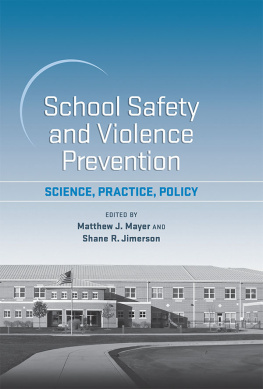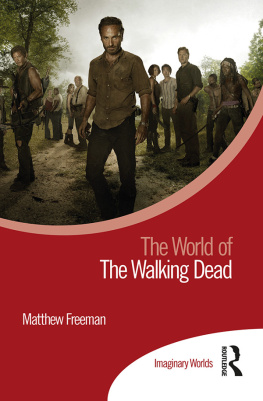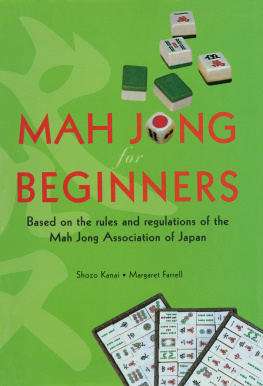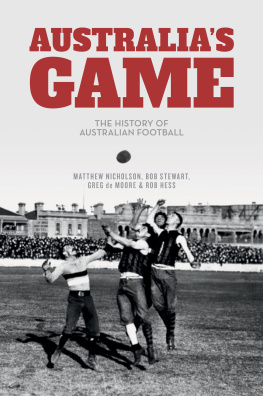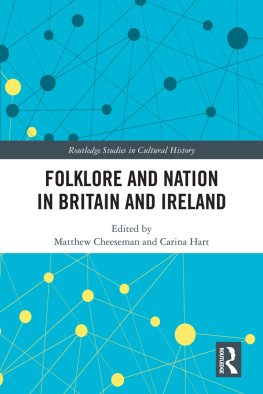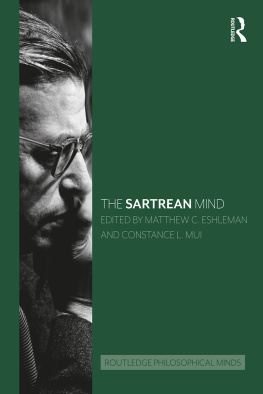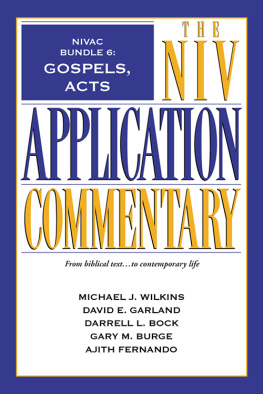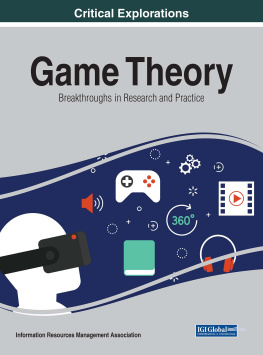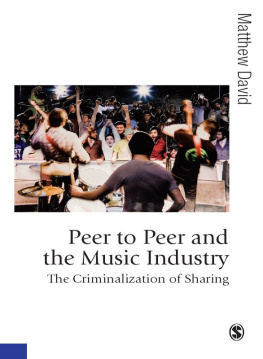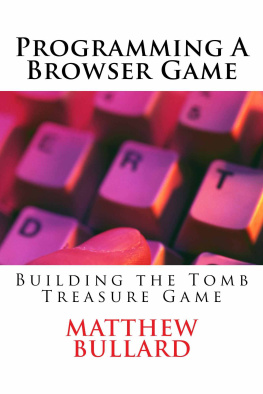Matthew Taylor - The Association Game
Here you can read online Matthew Taylor - The Association Game full text of the book (entire story) in english for free. Download pdf and epub, get meaning, cover and reviews about this ebook. year: 2013, publisher: Taylor and Francis, genre: Home and family. Description of the work, (preface) as well as reviews are available. Best literature library LitArk.com created for fans of good reading and offers a wide selection of genres:
Romance novel
Science fiction
Adventure
Detective
Science
History
Home and family
Prose
Art
Politics
Computer
Non-fiction
Religion
Business
Children
Humor
Choose a favorite category and find really read worthwhile books. Enjoy immersion in the world of imagination, feel the emotions of the characters or learn something new for yourself, make an fascinating discovery.

- Book:The Association Game
- Author:
- Publisher:Taylor and Francis
- Genre:
- Year:2013
- Rating:3 / 5
- Favourites:Add to favourites
- Your mark:
- 60
- 1
- 2
- 3
- 4
- 5
The Association Game: summary, description and annotation
We offer to read an annotation, description, summary or preface (depends on what the author of the book "The Association Game" wrote himself). If you haven't found the necessary information about the book — write in the comments, we will try to find it.
The Association Game — read online for free the complete book (whole text) full work
Below is the text of the book, divided by pages. System saving the place of the last page read, allows you to conveniently read the book "The Association Game" online for free, without having to search again every time where you left off. Put a bookmark, and you can go to the page where you finished reading at any time.
Font size:
Interval:
Bookmark:
The Association Game
Game
A History of British Football
Matthew Taylor

First published 2008 by Pearson Education Limited
Published 2013 by Routledge
2 Park Square, Milton Park, Abingdon, Oxon OX14 4RN
711 Third Avenue, New York, NY 10017, USA
Routledge is an imprint of the Taylor & Francis Group, an informa business
Copyright 2008, Taylor & Francis.
The right of Matthew Taylor to be identified as author of this work has been asserted by him in accordance with the Copyright, Designs and Patents Act 1988.
All rights reserved. No part of this book may be reprinted or reproduced or utilised in any form or by any electronic, mechanical, or other means, now known or hereafter invented, including photocopying and recording, or in any information storage or retrieval system, without permission in writing from the publishers.
Notices
Knowledge and best practice in this field are constantly changing. As new research and experience broaden our understanding, changes in research methods, professional practices, or medical treatment may become necessary.
Practitioners and researchers must always rely on their own experience and knowledge in evaluating and using any information, methods, compounds, or experiments described herein. In using such information or methods they should be mindful of their own safety and the safety of others, including parties for whom they have a professional responsibility.
To the fullest extent of the law, neither the Publisher nor the authors, contributors, or editors, assume any liability for any injury and/or damage to persons or property as a matter of products liability, negligence or otherwise, or from any use or operation of any methods, products, instructions, or ideas contained in the material herein.
ISBN: 9780582505964 (pbk)
British Library Cataloguing-in-Publication Data
A catalogue record for this book is available from the British Library
Library of Congress Cataloging-in-Publication Data
A catalog record for this book is available from the Library of Congress
Typeset in 10pt Sabon by 3
| The 'origins' debate: the public schools and popular football |
| Representations of football: the media, arts and literature |
| Hillsborough, the Taylor Report and the Premier League |
This book has benefited from the assistance of many colleagues and friends over a number of years. The initial proposal for the book was written while I was working at De Montfort University. Colleagues in the International Centre for Sports History and Culture and the history department were generous with ideas and advice and continued to be supportive after I had left to take up my present post. At Portsmouth, I have been lucky enough to work in a history team that takes research and scholarship seriously. Thanks go to former and present colleagues Dave Andress, Graham Attenborough, Brad Beaven, Sue Bruley, Rob James, Bob Kiehl, Ken Lunn, June Purvis, Gavin Schaffer, Heather Shore and James Thomas. Together with Barry Smart and Ben Oakley, I have run a cross-faculty unit at Portsmouth on Football and Society since 2003. This has helped me to sharpen some of my ideas, particularly about the contemporary history of the game. Students on this and other units at Portsmouth have helped me to think through my ideas, providing a challenging and enjoyable environment in which to teach.
I owe a particular debt to Neil Carter, Fabio Chisari, Neal Garnham, Martin Johnes, Pierre Lanfranchi, Tony Mason, William Morgan, Dil Porter, Wray Vamplew and Jean Williams, who helped me out with sources and/or allowed me to consult work before publication. Pierre read drafts of some of the chapters and provided valuable advice. I would also like to thank the anonymous reviewers who offered useful suggestions for improving the original manuscript.
An interest in, and fascination with, football has been a common thread in many of my friendships over the years. I hope that my friends from Lowestoft, York, Leicester and Portsmouth in particular find something in this book that resonates with their understanding and experience of the game, although I suspect that many will think Ive taken it far too seriously. Alex had the misfortune of experiencing her first World Cup with me at the same time as I was finishing the book. I am grateful to her for her patience and understanding of my temporary obsession with both. As always, my family has been a great support. My parents continue to show a genuine interest in my work and my brothers and their families have come to my aid on many occasions with free bed and board, and solutions to computer problems. This book could not have been completed without them.
The publishers are grateful to the following for permission to reproduce copyright material:
Plates courtesy of the Hulton Archive/Getty.
In some instances we have been unable to trace the owners of copyright material, and we would appreciate any information that would enable us to do so.
British football has a powerful sense of its own history. The culture of the game is replete with reminders of the past. We are constantly told of Britains instrumental role in the development of what is now the world game: that it was the country that invented football and then proceeded to bestow it upon the rest of the world. During major international championships, the English press focuses on the achievements of the boys of 66 and the 30 or 40 years of hurt since the last major triumph. The Wembley Wizards of 1928 and 1967 hold a similar place in Scottish sporting folklore. Football supporters are, in a sense, historians themselves; conveyors of particular forms of oral tradition and popular history. Even the most present-minded fans retain a keen awareness of the past, if only through the knowledge of the traditions, records and histories of their clubs and the competitions in which they play.
Footballs late-twentieth-century rehabilitation, exemplified in its structural, economic and cultural overhaul, heightened this sense of history and popular nostalgia for the games past. For the British press, Matthews death highlighted much about changes in football and society more broadly, reinforcing assumptions about the moral decay and decline of both.
Academic historians of sport have been anxious to distance themselves from these more popular interpretations of the past and from notions of heritage and nostalgia. Eager to establish the credentials of their subject as a legitimate area for scholarly inquiry, they have focused on how sport fits into the broader social milieu and what it tells us about wider historical trends. Sport has been envisaged in this sense as a lens through which important aspects of social, cultural, economic and political life can be illuminated and set in sharper focus. In this manner, the historical study of sport in Britain has made considerable strides over the years. From the earliest forays of individual academics who in the 1960s and 1970s began to write journal articles and monographs, the history of sport has become established as a vibrant and productive subject for scholarly research. Taking their lead from more adventurous North American and Australian colleagues, British historians began to establish their own journals, associations and, latterly, research centres. Over time, the sub-discipline of sports history has become recognised and the work of sports historians incorporated into the historical mainstream. It is hardly surprising that this research activity has been dominated by the study of football, by far the most prominent and popular sport in Britain today and, alongside perhaps cricket and horse racing, for much of the twentieth century.
Font size:
Interval:
Bookmark:
Similar books «The Association Game»
Look at similar books to The Association Game. We have selected literature similar in name and meaning in the hope of providing readers with more options to find new, interesting, not yet read works.
Discussion, reviews of the book The Association Game and just readers' own opinions. Leave your comments, write what you think about the work, its meaning or the main characters. Specify what exactly you liked and what you didn't like, and why you think so.

